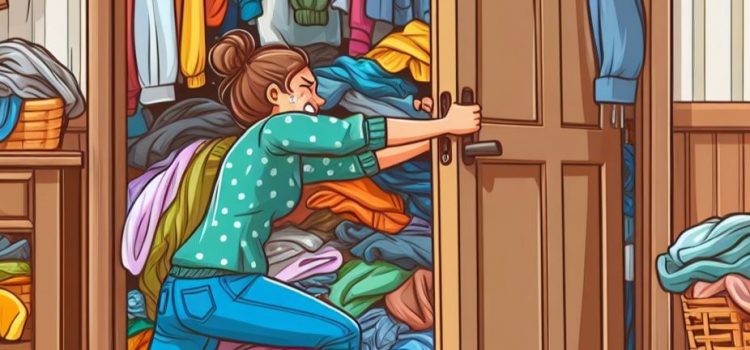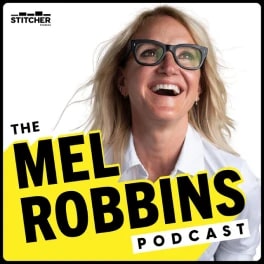

This article is an excerpt from the Shortform guide to "The Mel Robbins Podcast". Shortform has the world's best summaries and analyses of books, podcasts, and more.
Like this article? Sign up for a free trial here.
Are you often stressed about housework? Do you allow your home to control you, and not the other way around?
On The Mel Robbins Podcast, Robbins and her guest KC Davis discuss the societal pressures around cleanliness and outward appearances. They advocate for letting go of these expectations and letting your home serve you.
Here’s an overview of Robbins and Davis’ advice.
Rethink How You View Housework
This episode of The Mel Robbins Podcast rethinks conventional societal pressures related to self-care and cleanliness.
Robbins shares her struggles with following suggested timelines for tasks such as tooth brushing, illustrating how such norms can foster feelings of shame and judgment.
This sentiment is further echoed by guest KC Davis’s example of using baby wipes as an alternative to a traditional shower, demonstrating how thinking beyond accepted conventions could help enhance personalized self-care.
The Societal Pressure to Maintain an Impeccable Outward Appearance
The conversation critically addresses societal pressures about maintaining a clean outward appearance.
Robbins shares her personal experience, explaining how her upbringing, where her mother handled all domestic responsibilities, instilled in her the impression that these tasks were hers to tackle.
Speaking candidly, Robbins expresses remorse over previously mocking her son’s dental hygiene habits, reflecting the deep-rooted societal norms of cleanliness and self-care.
Stepping Away From Societal Standards
Davis asserts the necessity for open discourse about these struggles and the importance of distancing oneself from shame. She advocates that such a shift not only improves emotional health but also enhances overall mental health and life quality.
Davis goes further, encouraging people to detach shame from self-care, advocating for unconventional yet suitable methods based on individual needs, morphing the self-care strategies to more personalized and individualistic ones.
A New Perspective on Chores
Dissecting societal preconceptions that attach moral value to domestic chores, Davis offers an alternative perspective.
She introduces the idea that our living spaces, especially our homes, should serve us and not vice versa. Despite their demand for continuous upkeep, they should not control or overwhelm our lives.
She emphasizes the importance of replacing feelings of shame or worthlessness associated with incomplete self-care tasks with acceptance and understanding. These are instrumental in fostering a healthier outlook towards self-care and domestic chores.
Context
Household chores can have a significant impact on an individual’s emotional well-being, and understanding this relationship is crucial for navigating the challenges they present. These routine tasks, such as cleaning, cooking, laundry, and tidying, often come with emotional stress and self-criticism. Societal expectations and prejudices surrounding domestic tasks further compound these pressures. Gender roles play a particularly prominent role in shaping these expectations, with women historically shouldering the majority of household responsibilities. This podcast episode delves into the intersection of mental health and task completion, highlighting how individuals may experience heightened anxiety or depression when faced with overwhelming chores.
The episode also encourages listeners to challenge societal norms and rethink conventions related to cleanliness and self-care. It explores effective techniques for managing household chores and task prioritization to alleviate some of the emotional burden associated with them. By examining alternative approaches to self-care and personal hygiene, individuals can personalize their routines based on their own needs rather than conforming to external standards.
Looking ahead, there is potential for a shift in societal attitudes towards household chores. The future may see a greater emphasis on shared responsibility regardless of gender or other demographic factors. Recognition of individual preferences and needs could lead to more adaptable approaches that prioritize mental health alongside task completion. Advancements in technology may also play a role in reducing the burden of household tasks through automation.

———End of Preview———
Like what you just read? Read the rest of the world's best guides to The Mel Robbins Podcast" at Shortform.
Here's what you'll find in our full The Mel Robbins Podcast episode summaries:
- Advice to make your life and your personal relationships better
- How to boost your confidence with techniques recommended by experts
- Research-based lessons combined with personal stories






